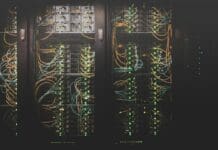
This post is also available in:
 עברית (Hebrew)
עברית (Hebrew)
Cyber Security has become a priority in various defense fields. Enhancing the cyber security of nuclear systems has certainly become an imperative.
A U.S. Air Force Scientific Advisory Board Study states that “Today’s dependences on cyber systems were not prevalent when legacy nuclear systems were fielded, nor were today’s cyber threats, including supply chain concerns”. The study will be released in 2017.
The US Air Force is seeking more interactions with private sector firms to build better networks for securing nuclear weapons computer systems, service officials said.
Among other things, the Air Force is seeking partnerships designed to address potential vulnerabilities with operating systems, infrastructure and various computer networks.
Although the protection of computer networks is well established in many ways, as Air Force engineers say, the service still needs to widen its scope with greater focus on IT dimensions to its nuclear arsenal’s command and control apparatus.
“Information technology that touches weapons systems needs to be cyber secure, updated and patched. Worldwide nuclear systems are one example of where we need to get an overhaul,” Peter Kim, Air Force Chief Information Security Officer, told Scout Warrior in an interview.
Modernizing computer networks for the nuclear arsenal is part of the services’ current plan to build as many as 400 new Inter-Continental Ballistic Missiles, or ICBMs, to serve through the 2070s. The Air Force is now assessing industry proposals to build the new ICBMs, from Northrop Grumman, Boeing and Lockheed Martin, according to scout.com.
The study preview goes on to indicate that the Air Force will benefit from a clearer understanding of how nuclear weapons’ security can be achieved in today’s increasingly digital environment.
Initiatives to look at securing computer networks for nuclear weapons comprise a key part of an Air Force program aimed at better connecting with private sector innovators.
The Air Force effort, which involves strengthening email encryption and computer-virus protections, is operating within part of a broader Defense Department effort referred to as Defense Innovation Unit – Experimental, or DIUx, Kim said. DIUx centers have been announced by Defense Secretary Ashton Carter in Silicon Valley, Austin, Texas and Boston, Mass., Kim added.
“There needs to be innovative technologies that can help us be more productive, safe and secure with cyber security,” he explained.

























